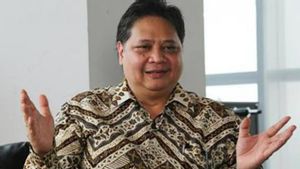JAKARTA - The recent spike in COVID-19 cases in Indonesia has made hospitals full and patients difficult to get treatment. Seeing this condition, Minister of Health Budi Gunadi Sadikin (BGS) asked all hospitals under the Ministry of Health to increase room capacity for patients.
Budi said the vertical hospitals under the Ministry of Health have an average bed capacity of 14,000. However, only 2,700 beds are used for handling COVID-19, or less than 20 percent. In fact, at least 30 percent of the active cases or 36 thousand beds are needed for the existing 120 thousand active cases.
"I have just signed all vertical hospitals under the Ministry of Health and must temporarily increase their capacity from 20 percent for COVID-19 to 30 to 40 percent," he said, in a working meeting with Commission IX DPR, Tuesday, January 12.
Furthermore, with this regulation, the hospital could add 1,400 beds without many new facilities and additional health personnel, only allocating it to receive COVID-19 patients.
However, Budi also acknowledged that the high number of active cases of COVID-19 made the pressure on doctors and health workers high. Therefore, the number of hospitals is limited, so that patients who are admitted are in the heavy category.
Meanwhile, patients with mild symptoms can carry out independent isolation, if they are unable, an integrated independent isolation facility must be made.
Related to the insufficient number of health workers, especially nurses, said Budi, it can be overcome by relaxing the rules for registration documents (STR). Previously, newly graduated nurses had to wait for STR before they could work.
With this STR, said Budi, now those who have graduated from school can immediately work. STR can be obtained if every health worker has a certificate and competency test certificate given to students after passing the education program exam and competency test.
Certificates issued by student colleges and competency test certificates issued by DIKTI. STR is valid for five years and can be extended every five years.
In accordance with Permenkes 1796 of 2011, STR which has expired can be extended through the participation of health workers in education and / or training activities, other scientific activities according to their profession, and community service activities.
"So that it can reduce excessive pressure on health workers and reduce exposure to them," he said.
The English, Chinese, Japanese, Arabic, and French versions are automatically generated by the AI. So there may still be inaccuracies in translating, please always see Indonesian as our main language. (system supported by DigitalSiber.id)













